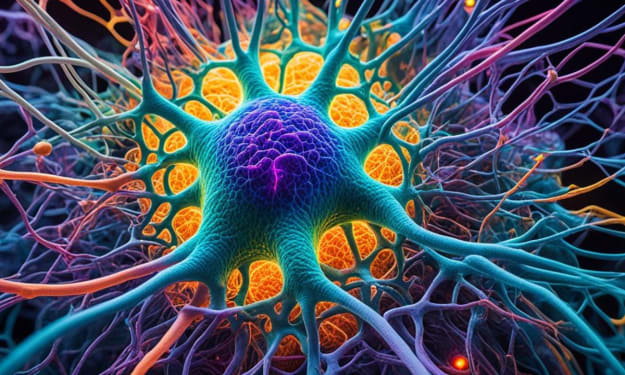The Future of Cardiovascular Disease Prevention and Care: What the Next Century May Hold
The Future of Cardiovascular Disease Prevention and Care - What the Next Century May Hold | HealthTech Insights

Cardiovascular disease (CVD) continues to be a leading cause of death worldwide, claiming millions of lives each year. As medical science advances, the next century holds promising possibilities for the prevention and care of CVD. From innovative technologies and personalized medicine to public health initiatives and lifestyle modifications, the future of cardiovascular health is poised to undergo transformative changes. This article explores the potential developments and trends in CVD prevention and care over the next hundred years.
Innovations in Medical Technology
Artificial Intelligence and Machine Learning
Artificial intelligence (AI) and machine learning (ML) are already making waves in various medical fields, and their application in cardiovascular health is expected to grow exponentially. AI can analyze vast amounts of data to identify patterns and predict outcomes, aiding in early diagnosis and personalized treatment plans. Machine learning algorithms can process information from electronic health records, wearable devices, and genetic data to provide real-time insights and recommendations, potentially reducing the incidence of heart attacks and strokes.
Advanced Imaging Techniques
Future advancements in imaging technologies, such as high-resolution MRI and CT scans, will enable more precise visualization of cardiovascular structures and functions. These improvements will facilitate early detection of atherosclerosis, valve disorders, and other conditions before they become symptomatic. Enhanced imaging will also aid in the development of minimally invasive surgical techniques, reducing recovery times and improving patient outcomes.
Personalized Medicine
Genomics and Precision Medicine
The field of genomics is unlocking the genetic underpinnings of cardiovascular disease, paving the way for precision medicine. By understanding an individual's genetic makeup, healthcare providers can predict susceptibility to certain conditions and tailor prevention strategies accordingly. Gene editing technologies, such as CRISPR, may one day allow for the correction of genetic mutations that predispose individuals to CVD, offering a potential cure rather than just treatment.
Pharmacogenomics
Pharmacogenomics, the study of how genes affect a person's response to drugs, will play a crucial role in personalized cardiovascular care. This approach will enable the customization of medications based on genetic profiles, minimizing adverse effects and maximizing efficacy. As a result, treatments for hypertension, cholesterol management, and other cardiovascular conditions will become more targeted and effective.
Lifestyle and Behavioral Interventions
Digital Health and Telemedicine
The rise of digital health and telemedicine will revolutionize the way cardiovascular care is delivered. Remote monitoring through wearable devices and smartphone apps will allow continuous tracking of vital signs, physical activity, and dietary habits. Healthcare providers can offer real-time feedback and interventions, ensuring that patients adhere to treatment plans and make necessary lifestyle modifications. This proactive approach can significantly reduce the risk of cardiovascular events.
Public Health Campaigns
Comprehensive public health campaigns will be essential in promoting cardiovascular health. Governments and organizations will likely invest in education and awareness programs that emphasize the importance of a heart-healthy lifestyle. These initiatives will target smoking cessation, healthy eating, regular exercise, and stress management, aiming to reduce the overall burden of CVD in the population.
Advances in Treatment Options
Regenerative Medicine
Regenerative medicine holds great promise for repairing damaged heart tissue and restoring function. Stem cell therapy and tissue engineering are emerging fields that could potentially regenerate heart muscle after a heart attack or reverse the effects of heart failure. Research is ongoing, but the next century may see significant breakthroughs that transform the way we treat cardiovascular conditions.
Novel Drug Therapies
The development of novel drug therapies will continue to advance the management of CVD. New classes of medications, such as PCSK9 inhibitors for cholesterol reduction and SGLT2 inhibitors for heart failure, are already making an impact. Future drug discoveries will likely target specific molecular pathways involved in cardiovascular disease, offering more effective and tailored treatment options.
The Role of Big Data and Predictive Analytics
Integration of Health Data
The integration of big data from various sources, including electronic health records, genetic databases, and wearable devices, will provide a comprehensive view of cardiovascular health. Predictive analytics can identify high-risk individuals and populations, enabling early interventions and personalized prevention strategies. This data-driven approach will enhance the ability to predict, prevent, and manage cardiovascular disease on a large scale.
Real-World Evidence
The use of real-world evidence (RWE) will complement clinical trials and provide insights into the effectiveness of interventions in diverse populations. By analyzing data from routine clinical practice, researchers can identify trends and outcomes that may not be evident in controlled settings. RWE will inform guidelines and best practices, ensuring that cardiovascular care is based on robust and applicable evidence.
The Impact of Socioeconomic Factors
Addressing Health Disparities
Health disparities remain a significant challenge in cardiovascular care. The next century will see a concerted effort to address these disparities by focusing on social determinants of health, such as access to care, education, and socioeconomic status. Policies aimed at reducing inequities and improving healthcare delivery in underserved communities will be crucial in reducing the burden of CVD.
Global Health Initiatives
Global health initiatives will play a vital role in combating cardiovascular disease worldwide. Collaborative efforts between governments, non-governmental organizations, and private sectors will be necessary to implement effective prevention and treatment strategies. These initiatives will focus on reducing risk factors, improving healthcare infrastructure, and ensuring access to essential medications and technologies.
Ethical and Regulatory Considerations
Ethical Implications of Genetic Testing
As genetic testing becomes more widespread, ethical considerations will need to be addressed. Issues such as genetic privacy, discrimination, and informed consent will be paramount. Ensuring that individuals understand the implications of genetic information and have access to appropriate counselling will be essential in navigating these ethical challenges.
Regulatory Frameworks
The rapid pace of innovation in cardiovascular care will require robust regulatory frameworks to ensure safety and efficacy. Regulatory agencies will need to adapt to emerging technologies and therapies, balancing the need for timely access with rigorous evaluation. Collaborative efforts between regulators, researchers, and industry stakeholders will be crucial in facilitating the translation of scientific advancements into clinical practice.
Conclusion
The next century holds immense potential for preventing and caring for cardiovascular disease. Innovations in medical technology, personalized medicine, and digital health will transform the way we diagnose, treat, and manage CVD. Public health initiatives, advances in treatment options, and the integrating of big data will enhance our ability to predict and prevent cardiovascular events. Addressing health disparities and ethical considerations will be essential in ensuring equitable and responsible care. With continued research, collaboration, and a focus on holistic health, the future of cardiovascular care promises to be brighter and more effective, ultimately reducing the global burden of cardiovascular disease.
About the Creator
Enjoyed the story? Support the Creator.
Subscribe for free to receive all their stories in your feed. You could also pledge your support or give them a one-off tip, letting them know you appreciate their work.





Comments
There are no comments for this story
Be the first to respond and start the conversation.